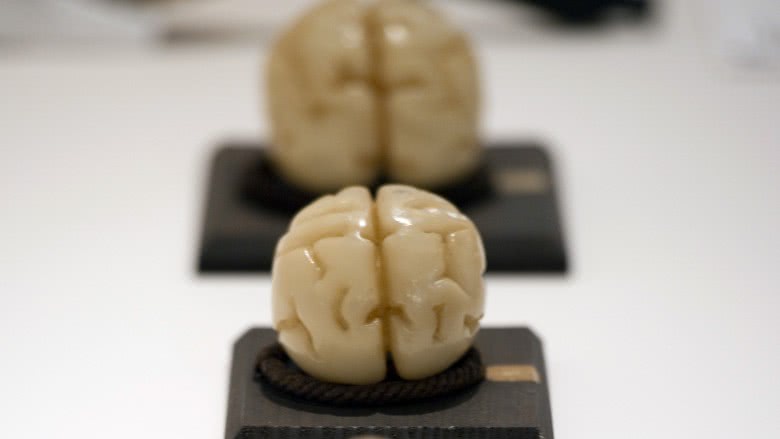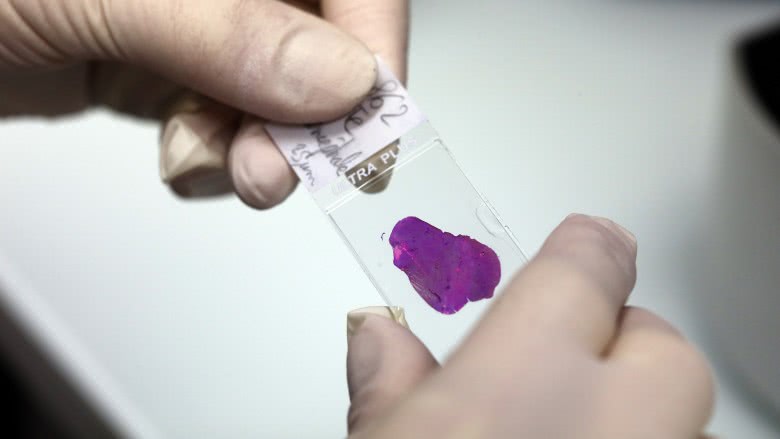Ways The Future Could Change Your Brain
Brains been the subject of speculation, prodding, poking, and just plain head-scratching approximately ever since they started to function. The Ancient Egyptians saw no spiritual significance for the brain, so it never got its own special jar for burial. However, as time marched on, and medical advancements and discoveries were made, humanity realized we've barely scratched the surface of the brain's potential. And as our tech advances further, brains are going to get even weirder.
Our memory will rely entirely on the Internet to function
The days of teasing your parents for calling you every sibling's name but your own due to memory difficulty are over, because it turns out we're all heading down the road of forgetfulness.
Due to our increasing reliance on the Internet—particularly sites with easily accessible information like Google—our brain's natural problem-solving and memory functions are being stunted.
Back when you had to go to a physical location or read an actual book to get the answer to questions like "do dolphins dream of having legs?," your brain retained the information for long periods of time. After a certain period, the brain does what amounts to a defragmentation and memory dump—the science heads at Oxford University call this "cognitive offloading." Before the increasing reliance on the Internet, the periods between these memory dumps was pretty wide and vast, so information was retained for much longer, stored in the brain for later use (let's have a round of applause for all our spewers of useless trivia). However, because the Internet has everything you want to know at your fingertips, you are training your brain to use information and then expediently dump it after use. The gap between memory dumps is shrinking, and our brains are defragging more and more.
What our brains are doing is the equivalent of using an external hard drive to store all of your information, the external in this case being the entire Internet. When the rise of the machines inevitably happens and our brains are completely given over to our robot overlords, will you opt for mechanical or solid state?
VR will make us more depressed, anxious, and less empathetic
After years of speculation and anxious prodding, the overlords of science have finally released the first, usable VR systems, such as the Oculus Rift. However, while there's much rejoicing to be had, the introduction of the ability to spend one's time in virtual worlds is not without its drawbacks.
In a nutshell, time spent in VR worlds makes us less physically aware, slower to react to our actual surroundings, and likely to cause severe social anxiety over time. The systems' official instructions warn users to take regular breaks, showing that even they realize that this is bigger break from reality than previous entertainments like TV and movies.
The problem may be seen as an extension of "electronic screen syndrome," which is the damage to the brain's empathy and impulse control centers due to separating yourself from the world and retreating to your devices. Psychologists warn that the old scare of "Internet addiction" is now creating an entire generation who self-medicates their addiction with more Internet usage, which is like curing your hangover by consuming more alcohol—fun, but not necessarily effective.
Our brains are shrinking
Our brains are shrinking. Apparently, this isn't cause for true alarm but merely a product of evolution. But remember that old science fact that a bigger brain meant the organism was smarter? Well, if that's true—which, it kind of is—then we certainly seem to be in bad shape.
As our bodies shrink according to the world around us, our brains do too, because the brain controls the nervous system and therefore adjusts according to the size and demands of the nervous system. Back when mankind was constantly fighting to survive in a hostile natural world, apparently we were bigger, stronger, faster, and therefore needed a larger nervous system.
That's kind of frightening to think about but unsurprising. As humanity becomes more domesticated and less reliant on surviving nature (and literally just surviving each other), the faculties of the brain evolved for evading predators, hunting and gathering, and problem solving in the wild places of the world are becoming more obsolete.
We may become telepaths
According to His Majesty of the Book of Face, Mark Zuckerberg, the future of communication lies not within microchips and cyberbrains but in telepathy. This is all theoretical, of course, but not so far off that it's impossible.
To understand how telepathy might work, we must understand how the brain communicates with the rest of the body. The entire nervous system is made of tiny cells called neurons that communicate using tiny little pricks of electricity. Everything from motor functions to breathing is controlled by this complex and intricate network, which is why spinal and cranial injuries are among the most severe. The communication is constant, so the human body generates electricity at a microscopic level 24 hours a day to perform all functions.
Scientists have developed ways to map this process using fMRI and EEG machines, but due to the intricate complexity of the brain itself and the nervous system, these maps are currently incomplete. However, once we have enough to work with, we can begin to read and understand how the system truly works on a higher level and possibly duplicate it.
Now how do we start sending our Facebook statuses via telepathy? Well, according to the lords of neuroscience in Berkley, there are invasive and non-invasive procedures still in development. The invasive procedure cheerfully consists of opening the human skull and brain and implanting a device that would act as a transmitter and receiver of messages. The non-invasive and obviously more preferred method would be a procedure called "transcranial magnetic stimulation," or TMS for the clumsy-tongued lot of us non-science types. Last fall, scientists in India were able to use this method on lab rats, making them think short and succinct greetings like "hello" and "good bye" and send them to scientists in France. Of course, having not been anywhere near perfected, the process was dial-up levels of slow, and the words had to be encoded in binary messages and then translated in pieces.
So, the jury is still out on whether we'll be able to tell the world about our experience eating a great donut within our lifetime.
Neural implants may physically plug us into the Internet
Do you hear that sound? That's the sound of the Ghost in the Shell fandom losing their collective marbles over the possibility of being able to neurally interface with the Internet and electronics.
That's right: we are hovering on the precipice of the entire reason The Matrix was made. SpaceX CEO Elon Musk wants to innovate the technology that will facilitate brain-to-computer interfacing directly. Of course, the information on his plans for the device, known only as Neurolink, is sparse, but from what we can see, there are already patents and trademarks in the works. The device, still in the conception stages, would be implanted via an invasive procedure, and Musk has frequently alluded to "neural lace," a fictional device first mentioned by author Iain Banks that's woven throughout the brain.
For those of you who played Mass Effect, this is the synthesis ending, the unique union between human and machine. We don't know about you guys, but the Neuralink device sounds like it can prevent the Terminator future we've been hurtling toward with people experimenting with creating artificial intelligence.
Brains are being grown in labs
Ever wish you could just replace your brain and be as smart as you wanted to be? Ever thought about just customizing your entire body from top to bottom? Well, apparently you can grow your own brain now.
Deep within the molecular biology labs of MRC Cambridge, a batch of human brains is growing. We know you pictured some horrible, amorphous beast due to escape and go on a rampage. You'll be pleased to know that none of this is mad science, although it aligns itself firmly within the realm of the weird.
The process is tentative, and the goal is to turn human skin into functioning brain cells. The brains are not grown inside a skull, although they are to follow the same developmental process as if they were growing within a person inside of a womb. They are fed nutrient-rich fluids every few days, and because these baby brains have virtually no immune system, everything that comes into remote contact with them must be thoroughly sterilized. Makes living in a bubble seem unsanitary.
The procedure has run into a bit of a success, with neurons firing on all synapses in the same way a regular, home-grown human brain would. The cerebral organoids, as they are called (because what's the harm in making the science behind this project sound weirder, really) are made of the same white and gray matter as regular brains. For those who aren't hip to neuroscience terminology: gray matter is made entirely of the neurons of the brain, and white matter is the fatty tissue of the neuron tails. Your brain is a giant mass of synaptic networking, how cool is that?
Making these brains is easier than one would think. Just don't expect to be able to find the equipment for the procedure in your local Toys "R" Us.






